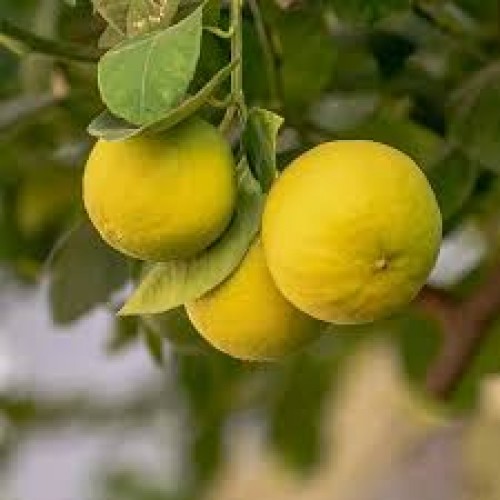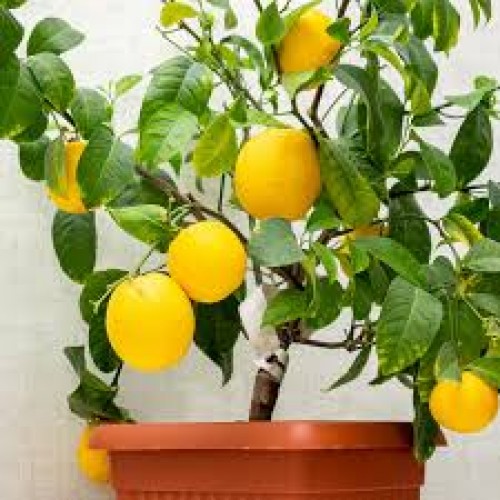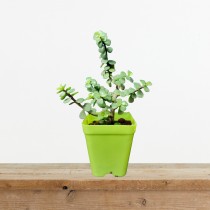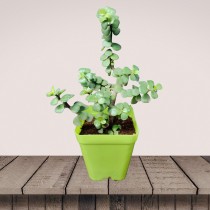60%
off
off
-
Sold
-

-

out
Lemon Plant (Citrus limon)
Botanical Features & Nature
- Scientific Name: Citrus limon
- Common Names: Lemon, Nimbu
- Family: Rutaceae
- Origin: Native to Asia, particularly Northeast India
- Growth Habit: Small evergreen tree, typically reaching 3–6 meters in height
- Leaves: Glossy green, oval-shaped leaves with a distinct citrus aroma
- Flowers: Fragrant white blossoms with a purple base
- Fruit: Yellow, oval-shaped fruit with acidic juice and aromatic rind
Care & Cultivation
- Sunlight: Requires full sun; at least 8 hours of direct sunlight daily
- Soil: Prefers well-drained, slightly acidic loamy soil enriched with organic matter
- Watering: Regular watering to keep the soil moist but not waterlogged; allow the topsoil to dry slightly between waterings
- Temperature: Thrives in warm climates; protect from frost and cold winds
- Fertilization: Apply a balanced, high-nitrogen fertilizer during the growing season (spring to early autumn)
- Pruning: Prune to remove dead or diseased branches and to maintain shape; best done in early spring
- Propagation: Commonly propagated through grafting or cuttings for true-to-type plants
Religious and Cultural Significance
- Hinduism: Lemons are used in rituals to ward off evil spirits and negative energies. Hanging a lemon with chilies at the entrance of homes and businesses is a common practice to protect against the evil eye. In some ceremonies, lemons are offered to deities as a symbol of purification and prosperity.
- Vastu Shastra: Planting a lemon tree near the entrance of a house is believed to attract positive energy and good luck.
- Other Cultures: In various traditions, lemons symbolize cleansing, healing, and protection. They are used in spiritual practices to promote clarity and remove negativity.
Uses and Advantages
- Culinary: Lemons are widely used for their juice, zest, and pulp in cooking and baking. They add flavor to dishes, beverages, and desserts.
- Medicinal: Rich in vitamin C, lemons boost the immune system, aid digestion, and have antioxidant properties. They are used in traditional remedies for sore throats, skin care, and weight management.
- Cleaning: The natural acidity and antibacterial properties of lemon make it an effective, eco-friendly cleaning agent for removing stains, deodorizing, and disinfecting surfaces.
- Aromatherapy: Lemon essential oil is used to uplift mood, reduce stress, and enhance mental clarity.
- Gardening: Lemon trees can be grown in gardens or containers, providing aesthetic appeal and fresh fruit. They also attract pollinators like bees, supporting biodiversity.

